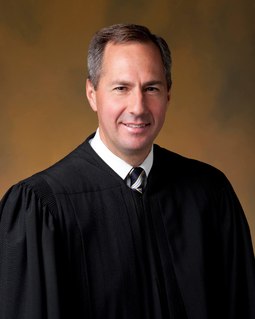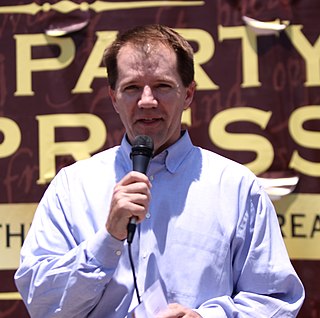A Quote by Thomas Jefferson
[T]he opinion which gives to the judges the right to decide what laws are constitutional and what not, not only for themselves, in their, own sphere of action, but for the Legislature and Executive also in their spheres, would make the Judiciary a despotic branch.
Related Quotes
People assume that the executive branch has more power than it actually has. Only the legislative branch can create the laws; the executive branch cannot create the laws. So, if the executive branch tries to create a branch one side or the other... you go back to the founders of the nation. They set up a system that ensures that it doesn't happen.
How we decide the vexed issue of the method of selection of judges of the Supreme Court and the high courts would determine the future of our democracy and the rule of law in the country. We are faced with the twin problem of selecting the best judges and also ensuring that the judiciary would be insulated from executive interference.
Democracy demands that judges confine themselves to a narrow sphere of influence - that is why the late Alexander Bickel called the judiciary the 'Least Dangerous Branch.' In a world governed by a proper conception of their role, judges don't play at being legislators - they leave that job to our elected representatives.
In the legislature, the House of Representatives is chosen by less than half the people, and not at all in proportion to those who do choose. The Senate are still more disproportionate, and for long terms of irresponsibility. In the Executive, the Governor is entirely independent of the choice of the people, and of their control; his Council equally so, and at best but a fifth wheel to a wagon. In the Judiciary, the judges of the highest courts are dependent on none but themselves.
That instability is inherent in the nature of popular governments, I think very disputable … A representative democracy, where the right of election is well secured and regulated & the exercise of the legislature, executive, and judiciary authorities, is vested in select persons, chosen really and not nominally by the people, will in my opinion be most likely to be happy, regular and durable.
It seems to many of us that if we are to avoid the eventual catastrophic world conflict, we must strengthen the United Nations as a first step toward a world government patterned after our own government with a legislature, executive and judiciary, and police to enforce its international laws and keep the peace.
It seems to many of us that if we are to avoid the eventual catastrophic world conflict we must strengthen the United Nations as a first step toward a world government patterned after our own government with a legislature, executive and judiciary, and police to enforce its international laws and keep the peace. To do that, of course, we Americans will have to yield up some of our sovereignty. That would be a bitter pill. It would take a lot of courage, a lot of faith in the new order.
It equally proves, that though individual oppression may now and then proceed from the courts of justice, the general liberty of the people can never be endangered from that quarter; I mean so long as the judiciary remains truly distinct from both the legislature and the Executive. For I agree, that "there is no liberty, if the power of judging be not separated from the legislative and executive powers." And it proves, in the last place, that as liberty can have nothing to fear from the judiciary alone, but would have every thing to fear from its union with either of the other departments.





























